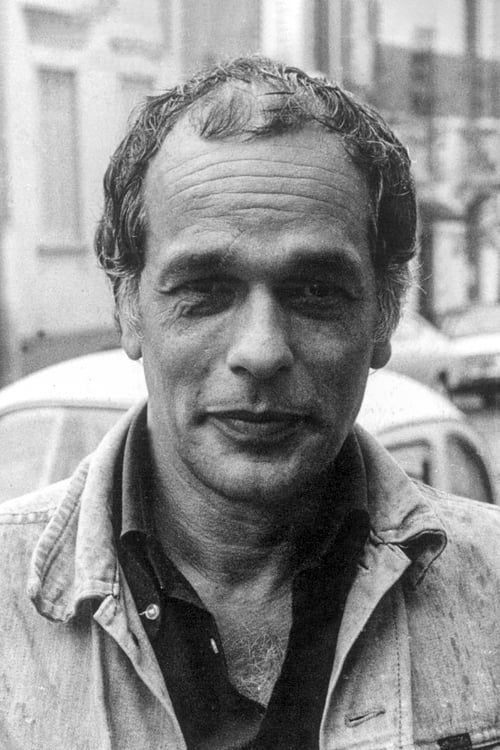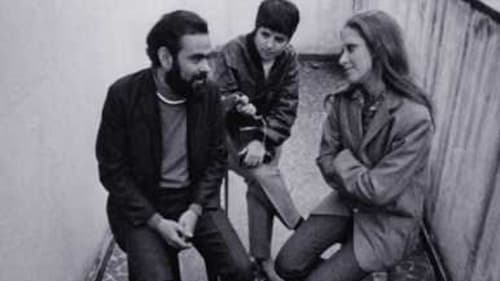
Self
An authentically marginal cinema created in Catholic university in Brazil. One of the most intriguing and imaginative moments in modern cinema in the voice of some of its select conspirators—with Carlos Reichenbach at the lead—, and through the most razing flow of images that can possibly be conceived.

Nelson Pereira dos Santos talks about The Highway of Life (1980)

Two years of research and visits to collections, cinematheques and museums; almost seventy interviews that generated 30 hours of recorded material; more than two hundred scanned photos and more than one hundred films watched. In total, more than a thousand hours of work were needed to prepare Brazilian Cinema in the 20th Century. The work is a fascinating journey through all the cinematic cycles that Brazil lived, from the pioneering Belle Époque, through the great studios like Atlântica and Cinédia, Cinema Novo, the urban comedies of the 70's, until the resumption in the late 90's. The documentary is unique, it gives the floor to who really wrote and lived this story intensely.
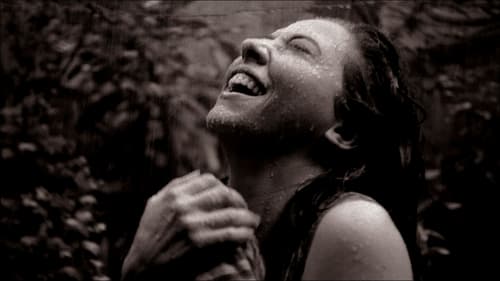
Self - Filmmaker (archive footage)
A deep investigation, in the way of a poetic essay, on one of the main Latin American movements in cinema, analyzed via the thoughts of its main authors, who invented, in the early 1960s, a new way of making movies in Brazil, with a political attitude, always near to people's problems, that combined art and revolution.

Self

A documentary on Cosme Alves Netto (1937-1996), former head of the Cinematheque of the Museum of Modern Arts at Rio de Janeiro.

Documentary on the view, testimonies and times of Darcy Ribeiro, since military dictatorship.

Director
Documentary about the life of Tom Jobim, from the perspective of three women of his life: his sister, Helena Jobim, his first wife, Thereza, and his second wife, Ana.
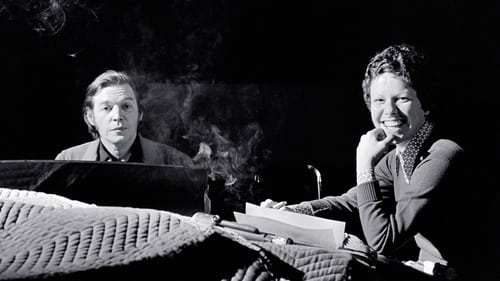
Director
Half a century ago, Brazilian composer and musician Antonio Carlos "Tom" Jobim (1927-1994) introduced bossa nova to a worldwide audience with "The Girl from Ipanema." This relaxed, cool, sensuous music blended jazz and samba. After recording an album of songs by his friend Jobim, Frank Sinatra is reported to have said, "I haven't sung so quietly since I had laryngitis." Naturally, "The Girl from Ipanema" and Frank Sinatra are featured in this musical collage of countless seamlessly edited excerpts of concert footage that cover decades of events all over the world: from Rio de Janeiro to Lisbon, Paris, Copenhagen, Jerusalem, Tokyo, Montreal, New York and back to Rio.

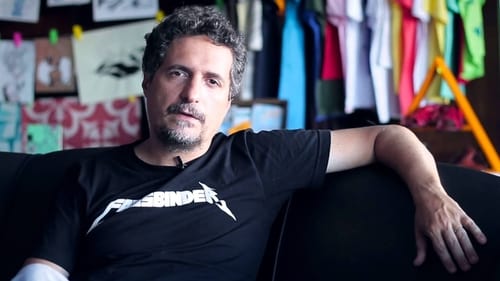
Self
Seventy critics and filmmakers discuss cinema around the conflict between the artist and the observer, the creator and the critic. Between 1998 and 2007, Kléber Mendonça Filho recorded testimonies about this relationship in Brazil, the United States and Europe, based on his experience as a critic.

16 members from the Brazilian Academy of Letters share their views on the current situation of the portuguese language.

Director
16 members from the Brazilian Academy of Letters share their views on the current situation of the portuguese language.

Writer
A star medical examiner is called to Brasília, the administrative capital of Brazil, to confirm the identity of a beautiful, young congressional aide's dead body. But his scientific rigor soon leads him to details of a multi-layered political scandal.

Director
A star medical examiner is called to Brasília, the administrative capital of Brazil, to confirm the identity of a beautiful, young congressional aide's dead body. But his scientific rigor soon leads him to details of a multi-layered political scandal.

Director
Documentary in two parts about Brazilian writer, journalist and sociologist Sérgio Buarque de Holanda. The first part describes how the author used to pass his days with family and friends, while the second offers a historical panorama of the times, including his reaction to Nazism and the years of Vargas’ dictatorship, and the arrival of the modernist movement in Brazil.
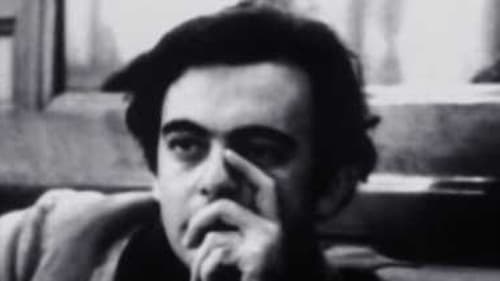
Documentary about Brazilian filmmaker Glauber Rocha, one of the most important names in the Cinema Novo, with interviews with some of his friends and colleagues.

On 17 May 1931, the young director Mário Peixoto released his masterpiece "Limite" in a premiere in Capitólio Theater in Rio de Janeiro to astonished audiences bewildered by the impressive and poetic images. Considered by many viewers the best Brazilian movie ever made, this feature has never been released commercially. However, in a great paradox, Mário Peixoto has never made any other movie. The director Sérgio Machado pays a great tribute to the life and work Mário Peixoto a.k.a. Maçarico by his close friends with this documentary, using his diary; footages of "Limite", the never concluded "Onde a Terra Acaba" (1933) and the short "O Homem do Morcego" (1980); and interesting testimonies of Olga Breno, Ruy Solberg, Nelson Pereira dos Santos and Walter Salles among others.

Himself
Memories of a parrot who participated in the filming of the classic Vidas Secas, in 1962, where it was featured along the puppy Baleia.

Director
Short musical film paying a tribute to samba composer Zé Ketti, one of the greatest popular artists of Brazilian music. In a jam session, in the late composer's house in Inhaúma, a neighborhood of Rio de Janeiro, a group of friends get together to play his music while a "feijoada" (typical Brazilian food with black beans)is being cooked in the kitchen. The samba-players, first-rate samba stars themselves, remember Ketti's great hits in a homage to the man who was best known as "a voz do morro" ("the hill's voice" - but hill as a metaphor for a place where poor people build their shacks in slums, in opposition to city, where middle-class people live in Rio). Among the guests, names of the traditional "samba-school" Portela and ex-partners. Also, the presence of a black hat on an empty chair, represents the composer himself, who died in 1999, after a life of many accomplishments in music, and appearance in three of Dos Santos's films: "Rio, 40 Graus", "Rio Zona Norte" and "Boca de Ouro".

Director

1943, World War II. The northeastern coast of Brazil is an strategic region for the Allies. Giancarlo, an Italian immigrant married to a Brazilian woman, lives nearby the Parnamirin Field, the largest military base built by the USA outside of their territory. In this new base, Brazilian recruits who speak English suddenly find themselves reaching privileged positions.

Screenplay
An aging Brazilian actor teams up with a film student on a trip to Mexico, in order to find out an unknown movie his mother allegedly watched before she committed suicide.

Director
An aging Brazilian actor teams up with a film student on a trip to Mexico, in order to find out an unknown movie his mother allegedly watched before she committed suicide.

Screenplay
After an extended period directing original screenplays, dos Santos returned to the creative engagement with literature that was the wellspring of his early masterpieces, offering a combinatory adaptation of five stories by the renowned Brazilian novelist João Guimarães Rosa. Openly embracing a mode of magical realism, dos Santos' celebrated film tells the story of a farming family defined by the absence of its father who abruptly abandoned his wife and children, sailing away down the river, including his son who continues to communicate with his father, speaking daily to him from the river bank. While offering an evocative vision of rural Brazil as a timeless land of mystery and solemnity, The Third Bank of the River is also bitingly satiric in the remarkable depiction of religious belief when the family moves to the city and its youngest member, a mesmerizing little girl, is revealed to be a kind of saint, capable of miraculous acts. -Harvard Film Archive

Director
After an extended period directing original screenplays, dos Santos returned to the creative engagement with literature that was the wellspring of his early masterpieces, offering a combinatory adaptation of five stories by the renowned Brazilian novelist João Guimarães Rosa. Openly embracing a mode of magical realism, dos Santos' celebrated film tells the story of a farming family defined by the absence of its father who abruptly abandoned his wife and children, sailing away down the river, including his son who continues to communicate with his father, speaking daily to him from the river bank. While offering an evocative vision of rural Brazil as a timeless land of mystery and solemnity, The Third Bank of the River is also bitingly satiric in the remarkable depiction of religious belief when the family moves to the city and its youngest member, a mesmerizing little girl, is revealed to be a kind of saint, capable of miraculous acts. -Harvard Film Archive


Ele mesmo
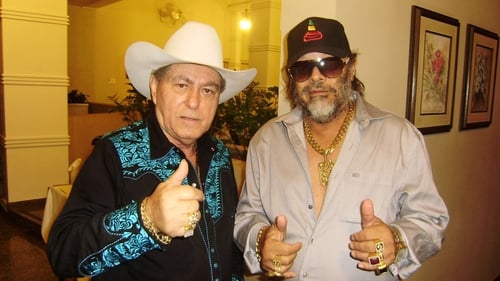
Producer
Milionário and José Rico are robbed of their money and their fans' enthusiasm. But a female truck driver is out to help them.
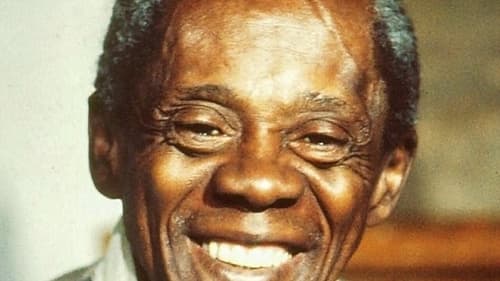
Writer
Jubiabá is a French-Brazilian film based on the homonymous novel by Jorge Amado. The film tells the story of the interracial love between the daughter of a rich Commander and Antonio Balduíno, a rascal, fighter and famous lover from Salvador.

Director
Jubiabá is a French-Brazilian film based on the homonymous novel by Jorge Amado. The film tells the story of the interracial love between the daughter of a rich Commander and Antonio Balduíno, a rascal, fighter and famous lover from Salvador.

Producer
Действие фильма основано на дневниковых записях бразильского писателя Грасилиано Рамоса, которые он вёл во время тюремного заключения, попав под репрессии после восстания коммунистов против диктатуры в стране. В картине показаны представители различных партий Бразилии 1930-х годов, а тюрьма представлена как метафора общества.

Writer
Действие фильма основано на дневниковых записях бразильского писателя Грасилиано Рамоса, которые он вёл во время тюремного заключения, попав под репрессии после восстания коммунистов против диктатуры в стране. В картине показаны представители различных партий Бразилии 1930-х годов, а тюрьма представлена как метафора общества.

Director
Действие фильма основано на дневниковых записях бразильского писателя Грасилиано Рамоса, которые он вёл во время тюремного заключения, попав под репрессии после восстания коммунистов против диктатуры в стране. В картине показаны представители различных партий Бразилии 1930-х годов, а тюрьма представлена как метафора общества.

Assistant Production Manager
Mid-1970s. When the military regime's "economic miracle" and the victory of the Brazilian football team on the World Cup serve as a distraction for the persecution of opposition leaders by the political police of the dictatorship. Under this context, Jofre Godoi da Fonseca, an alienated middle-class man, is mistaken for Sarmento, a political activist he met at an airport prior to his assassination. He is then arrested for being "subversive".

Writer
A three-episode anthology film based on short stories by Brazilian writer Graciliano Ramos.

Director
A three-episode anthology film based on short stories by Brazilian writer Graciliano Ramos.

Writer
It's Christmas Eve and an aunt and her nephew have to deal with their platonic relationship.

Director
It's Christmas Eve and an aunt and her nephew have to deal with their platonic relationship.

Director
The rise of real life country singers Milionário e José Rico from their humble beginnings until musical success.

Director

Writer
When a prominent U.S. Nobel Laureate arrives in Salvador, Bahia, the city with the largest black population in Brazil, he stirs emotions by championing a long-forgotten local writer named Pedro Archanjo, who believed that humanity would be improved only through miscegenation.

Director
When a prominent U.S. Nobel Laureate arrives in Salvador, Bahia, the city with the largest black population in Brazil, he stirs emotions by championing a long-forgotten local writer named Pedro Archanjo, who believed that humanity would be improved only through miscegenation.

Producer
A newlywed woman, frustrated after her honeymoon, decides to search for lovers on the streets and ends up causing a conflict between her husband, a baker and a black artist.

Producer
Однажды слепой гитарист встречает группу воров и решает развлечь их занимательной историей. Он рассказывает о человеке, пришедшем с на северо-востока Бразилии и вступившим в банду преступников в Рио-де-Жанейро. Этот человек имел «закрытое тело», что значит, был неподвижен внешним воздействиям. Даже пули отскакивали от него. В рассказе гитариста фигурировал таинственный амулет Огума, древнего божества, которому поклонялись в Африке и Бразилии. Этот амулет защищал преступника от опасности и ранней смерти.

Cinematography
Однажды слепой гитарист встречает группу воров и решает развлечь их занимательной историей. Он рассказывает о человеке, пришедшем с на северо-востока Бразилии и вступившим в банду преступников в Рио-де-Жанейро. Этот человек имел «закрытое тело», что значит, был неподвижен внешним воздействиям. Даже пули отскакивали от него. В рассказе гитариста фигурировал таинственный амулет Огума, древнего божества, которому поклонялись в Африке и Бразилии. Этот амулет защищал преступника от опасности и ранней смерти.

Writer
Однажды слепой гитарист встречает группу воров и решает развлечь их занимательной историей. Он рассказывает о человеке, пришедшем с на северо-востока Бразилии и вступившим в банду преступников в Рио-де-Жанейро. Этот человек имел «закрытое тело», что значит, был неподвижен внешним воздействиям. Даже пули отскакивали от него. В рассказе гитариста фигурировал таинственный амулет Огума, древнего божества, которому поклонялись в Африке и Бразилии. Этот амулет защищал преступника от опасности и ранней смерти.

Director
Однажды слепой гитарист встречает группу воров и решает развлечь их занимательной историей. Он рассказывает о человеке, пришедшем с на северо-востока Бразилии и вступившим в банду преступников в Рио-де-Жанейро. Этот человек имел «закрытое тело», что значит, был неподвижен внешним воздействиям. Даже пули отскакивали от него. В рассказе гитариста фигурировал таинственный амулет Огума, древнего божества, которому поклонялись в Африке и Бразилии. Этот амулет защищал преступника от опасности и ранней смерти.

Writer
The critical success in France of How Tasty Was My Little Frenchman made possible dos Santos’ delirious science-fiction vision of free love in a post-apocalyptic wilderness besieged by flesh hungry zombies contaminated by an unnamed nuclear attack. Who is Beta? follows two statuesque survivors drawn irresistibly together only to be entranced by the arrival and sudden disappearance of a third, the bewitching raven haired Beta. With its cartoon-like depiction of extreme violence and desire, Who is Beta? offers a heady Pop-infused companion to Hunger for Love. Yet beneath its giddy play of surfaces, dos Santos' underappreciated film gradually reveals a darkly ambiguous metaphoric dimension. -Harvard Film Archive

Director
The critical success in France of How Tasty Was My Little Frenchman made possible dos Santos’ delirious science-fiction vision of free love in a post-apocalyptic wilderness besieged by flesh hungry zombies contaminated by an unnamed nuclear attack. Who is Beta? follows two statuesque survivors drawn irresistibly together only to be entranced by the arrival and sudden disappearance of a third, the bewitching raven haired Beta. With its cartoon-like depiction of extreme violence and desire, Who is Beta? offers a heady Pop-infused companion to Hunger for Love. Yet beneath its giddy play of surfaces, dos Santos' underappreciated film gradually reveals a darkly ambiguous metaphoric dimension. -Harvard Film Archive

Director

Camera Operator
Documentary short about Brazilian medium Chico Xavier.

Director
Documentary short about Brazilian medium Chico Xavier.

The importance of the Cannes Film Festival in world terms and what it represented for Brazil in 1971. For Brazilian cinema, Cannes 71 represented the transition from film to industrialized production. It is the meeting of producers, technicians, critics , celebrities in general, offering opportunities for greater knowledge and renewal of values

Writer
Фильм повествует о любви попавшего в плен к индейцам французского конкистадора и очаровательной индианки. События происходят в 1594 году в Бразилии.

Director
Фильм повествует о любви попавшего в плен к индейцам французского конкистадора и очаровательной индианки. События происходят в 1594 году в Бразилии.

Screenplay
Сюжет рассказывает историю католического священника Симао Бакамарте, который приезжает в маленький городок Серафима, где собирается исследовать явление безумия. Большую часть местных жителей священник созывает в убежище, заставляя их медленно выходить из себя.

Director
Сюжет рассказывает историю католического священника Симао Бакамарте, который приезжает в маленький городок Серафима, где собирается исследовать явление безумия. Большую часть местных жителей священник созывает в убежище, заставляя их медленно выходить из себя.

Director
An extended research tour of US university film programs introduced dos Santos to the American avant-garde filmmakers, among them Jonas Mekas and Stan Brakhage, who would directly inspire his formally radical adaptation of an allegorical short story about adultery and colonialism by Guilherme de Figueiredo. Filmed in both Manhattan and Brazil and set against the background of the Vietnam War and its protests, Hunger for Love uses a rigorously abstract soundtrack and narrative structure to evoke the acute paranoia of the period building up to the December 1968 military coup that tipped Brazil perilously close to a conservative dictatorship. With its harsh critique of the decadent tendencies of the Sixties counterculture, Hunger for Love offers a key expression of the self-consciously “ideological” phase of Cinema Novo. -Harvard Film Archive

Edson is having an affair with a left-wing aspiring movie director during Brazil's military dictatorship years. He tries to get some easy money for her film, but ends up being arrested and tortured as his torturers suspect he's involved in a plot to overthrow the militar government.

Producer
A shockingly irreverent follow-up to the rural austerity of Barren Lives, dos Santos’ Godardian social satire owes more than a nod to the self-conscious antics of the French New Wave. The pampered son of a general, El Justicero is a hipster playboy who fancies himself a James Bond/Jean Paul Sartre urban hero. “Archetypical” yet “full of contradictions,” he sees that justice is achieved for the disadvantaged while taking advantage of certain bourgeois perks. His exploits are closely followed and eventually directed by his biographer who decides a film is not only more lucrative than a book, but it gives him the luxury of reviewing previous scenes. Unlike Bond, El Jus eventually experiences an awakening which threatens to compromise the entertainment value and glamour of his life story. - Harvard Film Archive

Writer
A shockingly irreverent follow-up to the rural austerity of Barren Lives, dos Santos’ Godardian social satire owes more than a nod to the self-conscious antics of the French New Wave. The pampered son of a general, El Justicero is a hipster playboy who fancies himself a James Bond/Jean Paul Sartre urban hero. “Archetypical” yet “full of contradictions,” he sees that justice is achieved for the disadvantaged while taking advantage of certain bourgeois perks. His exploits are closely followed and eventually directed by his biographer who decides a film is not only more lucrative than a book, but it gives him the luxury of reviewing previous scenes. Unlike Bond, El Jus eventually experiences an awakening which threatens to compromise the entertainment value and glamour of his life story. - Harvard Film Archive

Director
A shockingly irreverent follow-up to the rural austerity of Barren Lives, dos Santos’ Godardian social satire owes more than a nod to the self-conscious antics of the French New Wave. The pampered son of a general, El Justicero is a hipster playboy who fancies himself a James Bond/Jean Paul Sartre urban hero. “Archetypical” yet “full of contradictions,” he sees that justice is achieved for the disadvantaged while taking advantage of certain bourgeois perks. His exploits are closely followed and eventually directed by his biographer who decides a film is not only more lucrative than a book, but it gives him the luxury of reviewing previous scenes. Unlike Bond, El Jus eventually experiences an awakening which threatens to compromise the entertainment value and glamour of his life story. - Harvard Film Archive

Producer
Documentary about middle-class people in Rio de Janeiro, in the 1960s, when Brazil was going through a hard period in its history, with the military coup and the following dictatorship. Interviews with people in the street disclose their fears, aspirations and political alienation.

Himself
Originally produced for German TV, Improvised and Purposeful is a firsthand look at the "Cinema Novo" movement (otherwise known as the 'Brazilian New Wave'). Director Joaquim Pedro de Andrade focuses on six Cinema Novo filmmakers working in Rio in 1967.

Editor
An amalgamation of accents and life experiences from different parts of Brazil reunited on the city of Brasília.

Director
An amalgamation of accents and life experiences from different parts of Brazil reunited on the city of Brasília.

Producer
Augusto Matraga is a violent agressive farmer who, after being betrayed by his wife and trapped by several enemies, is bitten up and left for dead, being rescued by a couple of humble small farmers who nurse him for a long time until he is well again. Influenced by the couple, Matraga starts a long penitent life while waiting for his hour and chance to payback, starting a fight between his violent nature, his hidden desire of vengeance and the mysticism and goodness which is also part of him.

Editor
Statistics, interviews and historical information on illiteracy and inequality in land distribution in Brazil's countryside.

Writer
Documentary about the history of Jornal do Brasil, founded on April 14, 1891. In 1965, the Jornal do Brasil marked its innovative and active position, as recorded in the documentary "A Seventv-Four- Year-Old Fellow" by the filmmaker Nelson Pereira dos Santos, and the story itself was in charge of confirming. In the following years, the newspaper would witness the most remarkable events of the second half of the twentieth century in Brazil and in the world. It would applaud the democratic struggles and independence of peoples, support social demonstrations against oppression and justice at all levels. Tirelessly, he did not hesitate to report the truth of the facts, regardless of the circumstances in which they presented themselves.

Director
Documentary about the history of Jornal do Brasil, founded on April 14, 1891. In 1965, the Jornal do Brasil marked its innovative and active position, as recorded in the documentary "A Seventv-Four- Year-Old Fellow" by the filmmaker Nelson Pereira dos Santos, and the story itself was in charge of confirming. In the following years, the newspaper would witness the most remarkable events of the second half of the twentieth century in Brazil and in the world. It would applaud the democratic struggles and independence of peoples, support social demonstrations against oppression and justice at all levels. Tirelessly, he did not hesitate to report the truth of the facts, regardless of the circumstances in which they presented themselves.
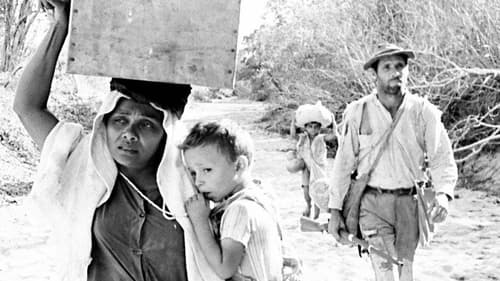
Screenplay
Подчеркнуто простая по стилю, жестокая в своей правдивости, лента раскрывает трагедию умиравших от голода крестьян северо-востока Бразилии…

Director
Подчеркнуто простая по стилю, жестокая в своей правдивости, лента раскрывает трагедию умиравших от голода крестьян северо-востока Бразилии…
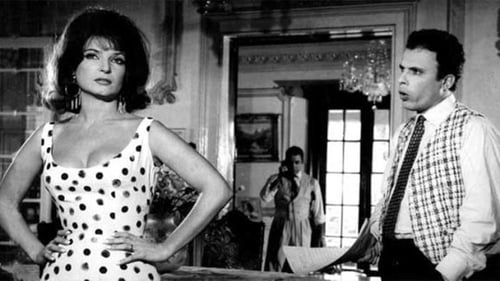
Writer
For his first in a long series of wildly imaginative literary adaptations, dos Santos reinvented Nelson Rodrigues' novel about a pathological gangster with solid gold teeth and a voracious appetite for women and power. Embracing radically modernist narrative techniques, Golden Mouth offers a splintered, refractive portrait of brutal masculinity that returns repeatedly to the same moment from different vantages, each time revealing unexpected perspectives on the brutal yet strangely charming criminal. Lurid and disturbing, Golden Mouth delivers a savage satire of marriage and class pretensions, revealing a similar venality at the corroded heart of the sanctimonious bourgeoisie, the moneyed elite and the working class as they all mercilessly claw their way up and down the rickety and ruthlessly hierarchical Brazilian social ladder. -Harvard Film Archive

Director
For his first in a long series of wildly imaginative literary adaptations, dos Santos reinvented Nelson Rodrigues' novel about a pathological gangster with solid gold teeth and a voracious appetite for women and power. Embracing radically modernist narrative techniques, Golden Mouth offers a splintered, refractive portrait of brutal masculinity that returns repeatedly to the same moment from different vantages, each time revealing unexpected perspectives on the brutal yet strangely charming criminal. Lurid and disturbing, Golden Mouth delivers a savage satire of marriage and class pretensions, revealing a similar venality at the corroded heart of the sanctimonious bourgeoisie, the moneyed elite and the working class as they all mercilessly claw their way up and down the rickety and ruthlessly hierarchical Brazilian social ladder. -Harvard Film Archive
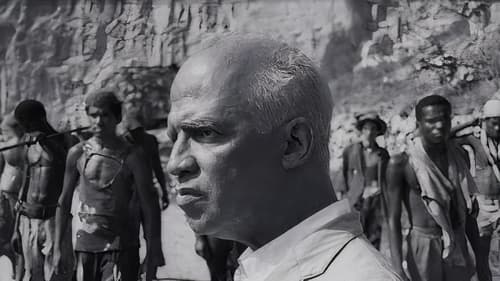
Editor
Men work in a quarry on the edge of a hill where a slum is located, of which they are residents. The slope is blown up, advancing to the land near the shacks. Slum dwellers are warned that new explosions can cause damage. The community decides to place itself on the slope, preventing another explosion; without attitude, the foreman gives up on blowing up the hill.

Editor
In Bahia, an educated black man returns to his home fishing village to try and free people from mysticism, in particular the Candomblé religion, which he considers a factor of political and social oppression, with tragic outcome.
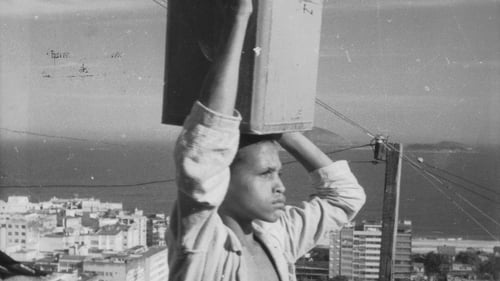
Editor
Five segments about the hardships faced by people living in slums on hills in Rio de Janeiro.

Editor

Augusto
Despite being promised to another man, a young orphaned woman falls in love with man working at the farm she lives in , and together they escape. According tradition in Northeast Brazil, her aunt goes after them, in order to kill them for revenge.

Producer
Despite being promised to another man, a young orphaned woman falls in love with man working at the farm she lives in , and together they escape. According tradition in Northeast Brazil, her aunt goes after them, in order to kill them for revenge.

Writer
Despite being promised to another man, a young orphaned woman falls in love with man working at the farm she lives in , and together they escape. According tradition in Northeast Brazil, her aunt goes after them, in order to kill them for revenge.

Director
Despite being promised to another man, a young orphaned woman falls in love with man working at the farm she lives in , and together they escape. According tradition in Northeast Brazil, her aunt goes after them, in order to kill them for revenge.

Producer
On the day of his wedding, young man from a family of immigrants faces some problems to get the money needed for the last arrangements. The family do what they can in order to honour the great event, selling personal belongings and buying enough supplies for a decent party.

Screenplay
A talented songwriter of sambas is forced to face the social injustices of the city around him.

Director
A talented songwriter of sambas is forced to face the social injustices of the city around him.

Screenplay
Белым громадам ультрасовременных домов и фешенебельным дворцам противопоставлены развалившиеся хибары, сколоченные из фанеры и жести, грязь и нищета. Это фавеллы - трущобы Рио-де-Жанейро. Здесь живет простой и веселый трудовой народ города. О жизни этих людей, о социальных контрастах города рассказывает фильм.

Director
Белым громадам ультрасовременных домов и фешенебельным дворцам противопоставлены развалившиеся хибары, сколоченные из фанеры и жести, грязь и нищета. Это фавеллы - трущобы Рио-де-Жанейро. Здесь живет простой и веселый трудовой народ города. О жизни этих людей, о социальных контрастах города рассказывает фильм.

Assistant Director
Two kids and a living, talkative doll attempt to catch a mulatto boy-like, supernatural one legged figure known as the Saci-Pererê, that enjoys playing pranks to the farms.

Director
